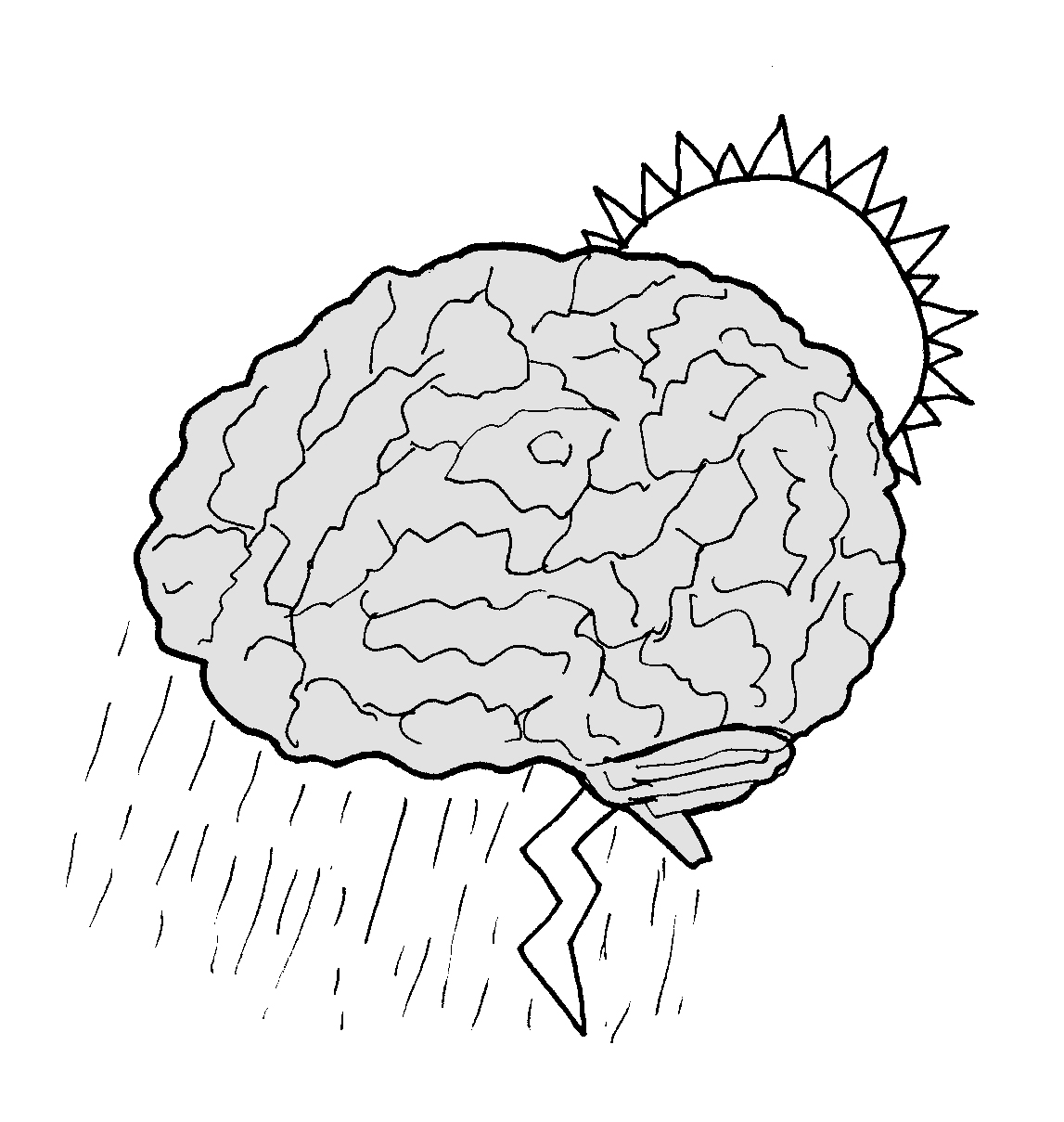People are starting to notice
November 22, 2019
When I see the word “mental illness,” my mind goes straight to the word “illness.” Then a host of other words start to flow through my mind: disease, disability, impaired, bad, inferior, unworthy. The list continues, but the negative connotation of the words remain the same.
In our society, mental illness has a history of stigmatization. For example, in World War I and World War II, soldiers would come back from war and never speak about the debilitating stress they experienced. They pushed the stress to the side and gave it a name, “shell shock.” It was just how they got by. As my Great Uncle Bob said, “None of them spoke about what happened overseas. No one.”
All of these soldiers were suffering. These men had to come back to America and provide for their families. Who was going to listen to their stories? If they were lucky, maybe they could talk to their wives, or a childhood friend, but in actuality, there was a slim chance of this happening.
It is a different story today.
Just take a look at the new “Joker” movie and Joaquin Phoenix’s stunning performance. Director Todd Phillips has taken a risk by exploring what it means to be human and to have empathy for a character you are supposed to despise.
As I watched the movie, I had a desire to rage against the nihilism of Arthur Fleck while simultaneously realizing that these emotions exist inside me. Obviously these emotions don’t push me to the point of psychopathic action, but that is not the point, even though many critics draw the conclusion that by watching the movie one can become a nihilist or, in the extreme sense, a psychopath or school shooter (how silly).
In opposition to these claims, “Joker” is a piece of art that provokes and operates “as a way of suggestion,” as the American poet Franz Wright said about his poetry. The provocative nature of the film allows viewers to see how a mental illness develops in childhood through physical and emotional abuse, untold lies and a lack of humility from parents to ask how you are feeling.
All of this couldn’t be done without Phoenix, who uses his acting talent to convey something of value to the viewers. Whether it be Phoenix’s melodic dance in the bathroom or his unorthodox laughter (a medical condition), he portrays in the fullest sense of what it means to be destroyed in a world where you were never accepted in the first place.
Phoenix, through his acting, demonstrates that Arthur Fleck is a human with a history. He provokes viewers to writhe in their seat, leave with an uncomfortable empathy and ask themselves, am I supposed to feel this way?
In a way, “Joker” lends itself to what Carl Jung, a famous analytical psychologist, calls the social significance of art: “Therein lies the social significance of art: it is constantly at work educating the spirit of the age, conjuring up the forms in which the age is most lacking.”
“Joker” says what has not been said, making it a great piece of art that will hopefully win Phoenix and Phillips Oscars and provoke viewers to think about their own mental health and that of others.
I would admit that “Joker” made me think about what mental illness meant to me after having been through countless psychologists, psychiatrists, a 10-day trip to the psychiatric hospital and a diagnosis of Obsessive Compulsive Disorder (OCD).
In my own view, I see mental illness through a scene from “Good Will Hunting.” The scene takes place at a pond, where Sean McGuire (Robin Williams) and Will Hunting (Matt Damon) are sitting on a bench. Sean goes on to tell Will that he doesn’t know anything about life, love, art or war, but then ends the scene with a very important message to Will: “I can’t learn anything from you I can’t read in some fucking book, unless you want to talk about you, who you are.”
Dylan Welch is a member of the Class of 2022.


Comments
Before submitting a comment, please review our comment policy. Some key points from the policy: